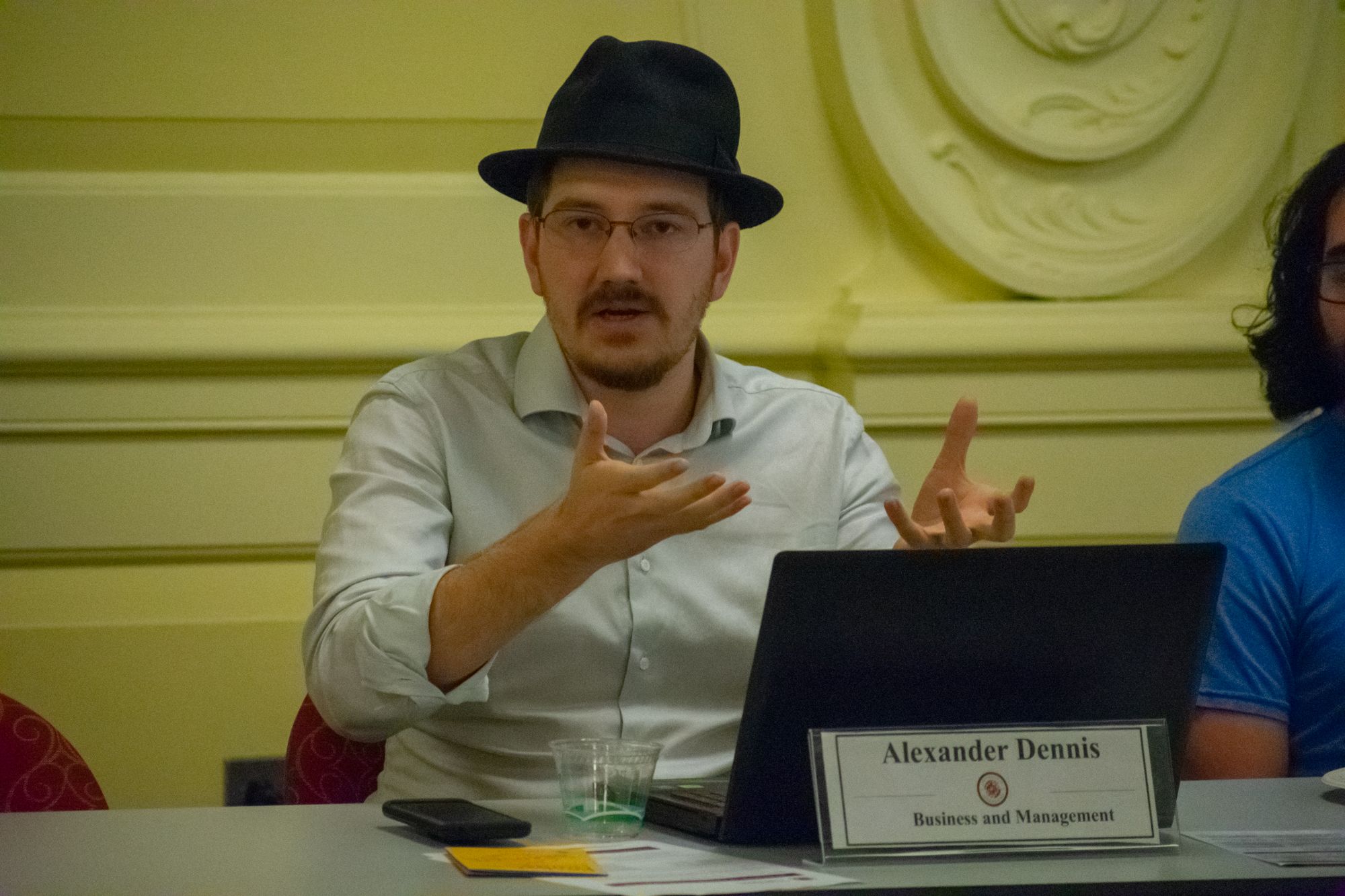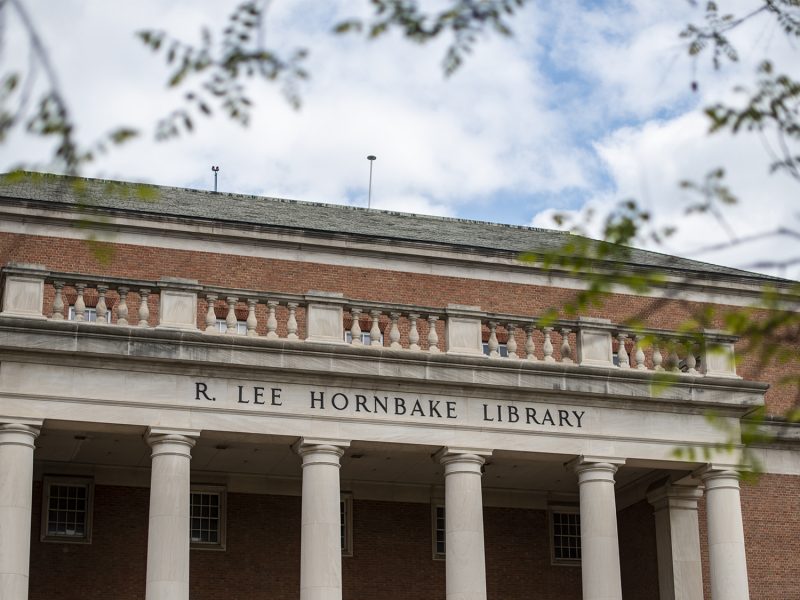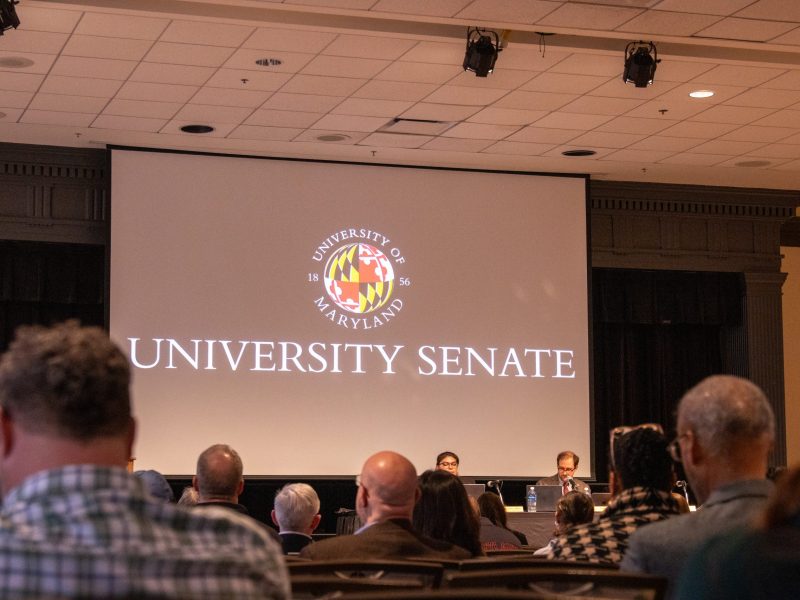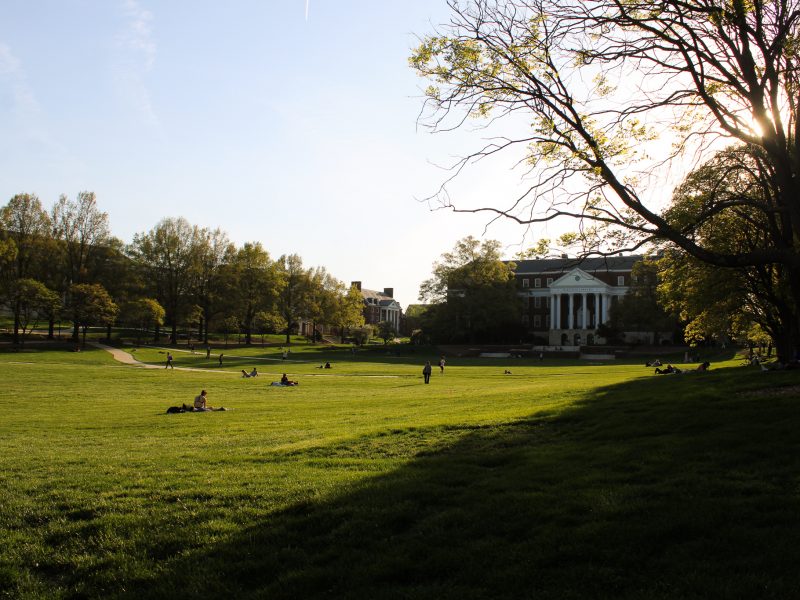The University of Maryland’s GSG voted Monday to support legislation introduced in the Maryland General Assembly that would give graduate student workers collective bargaining rights.
Communication department representative Katie Brown said the vote to pass the resolution — 20-1 with two abstentions — signaled that the Graduate Student Government would make advocating for the bill a priority this semester.
“Four thousand-plus graduate students are workers … that’s an insane number of people running around without legal contracts,” said Brown, who authored the bill. “Graduate Student Government is all about improving conditions for graduate students, and a huge part of that is improving work conditions.”
[Read more: International students in these UMD masters programs can’t find on-campus jobs]
If passed, the bill would amend and repeal a portion of state law that denies collective bargaining rights to graduate student workers at University System of Maryland institutions and two other public universities in the state. This would allow the employees in question to negotiate wages and terms of employment with their supervisors, as well as arrange legally enforceable contracts.
The resolution drew strong opposition from Alexander Dennis, a business school representative, who was the sole vote against it.
“I’ve spoken to over two dozen of my constituents, and not a single person wants this bill,” he said.
Dennis said the doctoral students he spoke with don’t think they would benefit from paying dues to bargain alongside graduate workers from departments across the campus who may have different demands.
As a doctoral student in the business school, Dennis said he faces decidedly different issues from his fiancee, an art history doctoral student. For one, Dennis said, graduate assistants in his program typically receive higher stipends than students in other departments across the campus and would not benefit from a fight to increase the minimum stipend, which currently sits at $16,536 for a nine-month assistantship.
[Read more: “I just want an opportunity to stay above water”: UMD employees are calling for raises]
The bill in Annapolis does not move to establish bargaining units — groups that would work together to arrange contracts — or solicit union dues from graduate student workers. Instead, it offers these employees a choice of whether to move toward unionization.
“I support this resolution so we can have an option,” said engineering department representative Shivang Patel. “If you don’t support this, we don’t have an option.”
Currently, graduate student workers can discuss job-related concerns with the graduate school in “meet-and-confer,” a process that doesn’t result in enforceable agreements. Since the fall, supervisors have also been required to meet with their graduate assistants to discuss and document the duties they’ll be expected to perform.
While these “statements of mutual expectation” prevent graduate student workers from working overtime to satisfy vague job descriptions, the problem remains that they are not legally enforceable contracts. As a result, violations can’t be brought to the National Labor Relations Board.
In spring 2018, physics department representative Zachary Eldredge helped conduct a survey of mental health issues graduate students in his department face. Eldredge said a “sizable” number of respondents cited scattered and poorly articulated expectations and poor — sometimes abusive — relationships with their advisers as contributing to mental health issues they face.
“If we really want to move beyond and transform the advisor-advisee relationship and do something that can really focus on academics … we do need to have some kind of vested collective power,” Eldredge said. “And I do think collective bargaining is the best way forward.”



